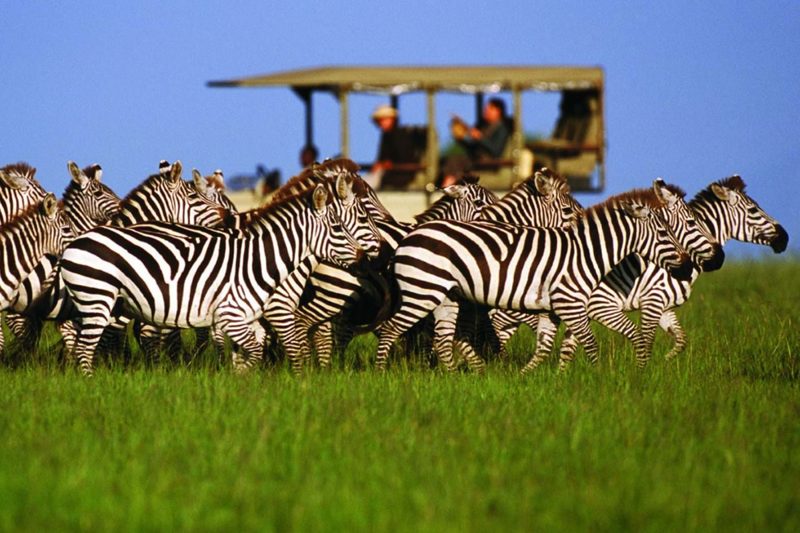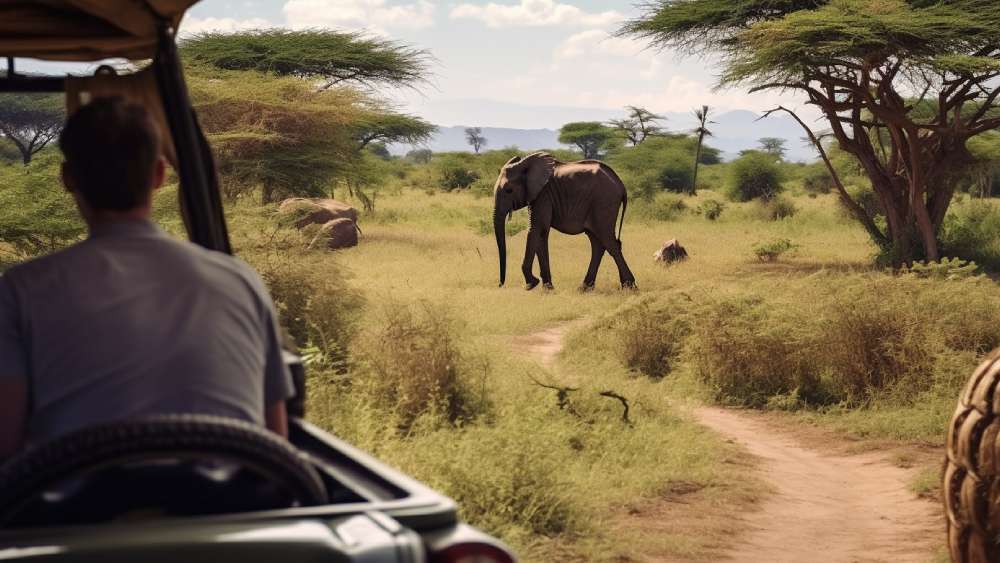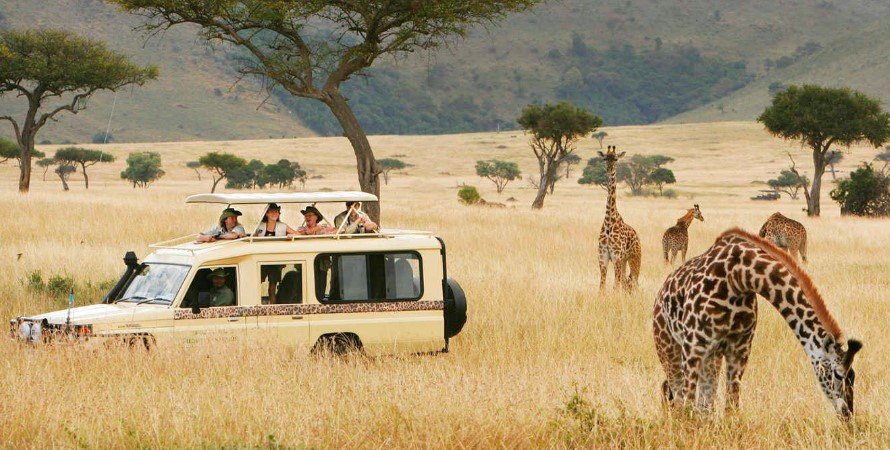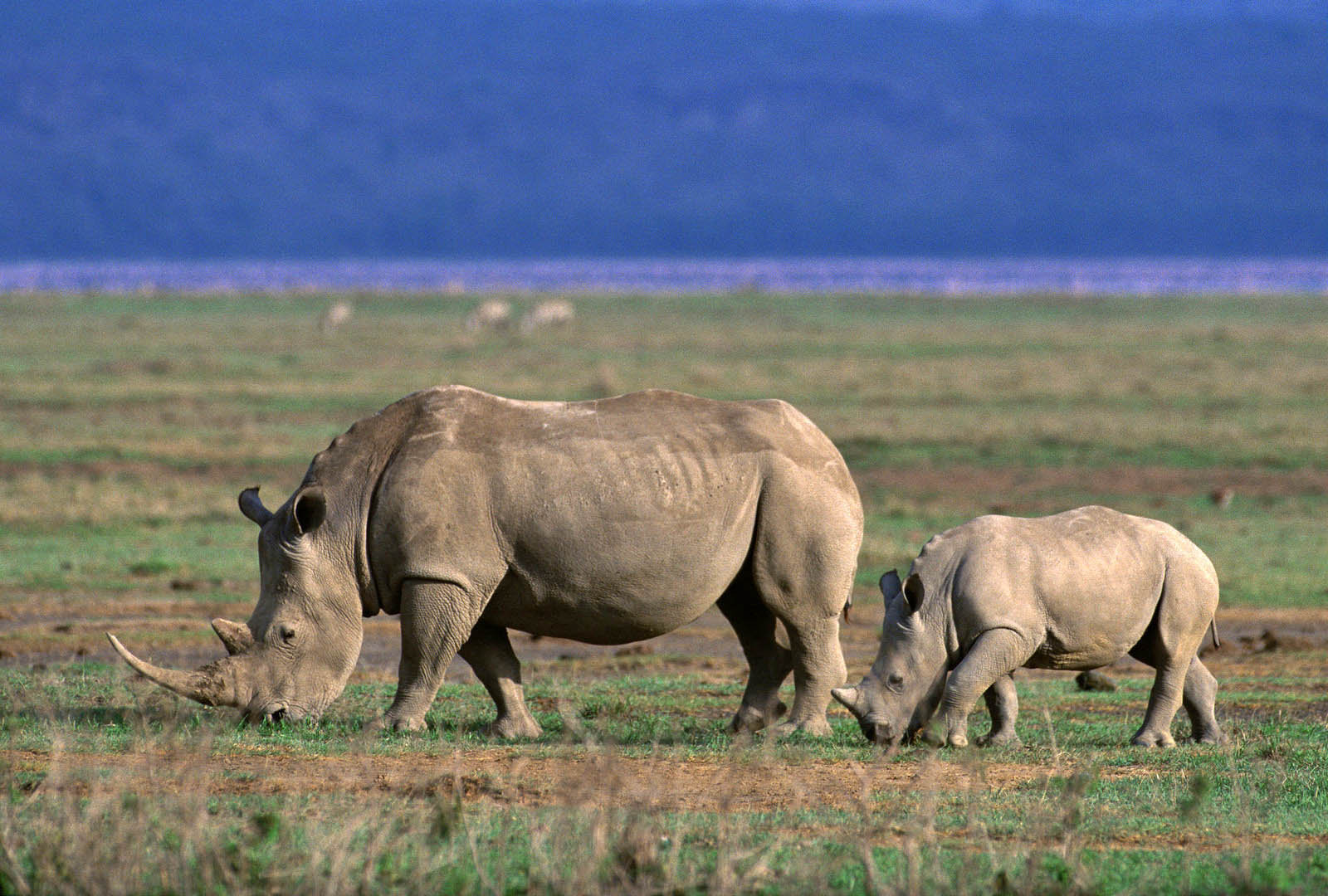Wildlife Safari 101: Tips and Tricks for Canadian Tourists Exploring Tanzania's National Parks

Introduction
Overview of Wildlife Safaris
When you think of adventure travel, wildlife safaris are often the first thing that comes to mind. Imagine traversing vast savannahs, witnessing majestic animals in their natural habitats, and immersing yourself in the breathtaking landscapes that nature has to offer. Wildlife safaris create unforgettable experiences where you can connect with Earth’s incredible creatures while creating lasting memories. For those planning a safari, here’s a quick rundown of what you can expect:
- Diverse Ecosystems: From sprawling national parks to wetlands, each safari destination offers a unique environment teeming with wildlife.
- Iconic Animals: You might spot elephants majestically walking, lions lounging in the shade, and elusive leopards gracefully climbing trees.
- Expert Guidance: Knowledgeable guides enhance the experience by sharing insights about animal behaviour, safety tips, and local cultures.
Furthermore, a wildlife safari embodies the spirit of adventure, making it the perfect opportunity to delve into the wild while contributing to conservation efforts. It's not just about sightings; it's a chance to appreciate the intricate balance of ecosystems. So, whether you're a seasoned traveller or planning your first excursion, wildlife safaris promise to be both exhilarating and enlightening.

Planning Your Safari Trip
Choosing the Right National Park
Selecting the perfect national park is vital to ensuring a memorable safari experience. Tanzania boasts some of the world's premier safari destinations, each offering its unique allure. For instance, if you're eager to witness the Great Migration, the Serengeti National Park is your go-to spot. For a more tranquil encounter with nature, consider the serene landscapes of Tarangire National Park, renowned for its impressive elephant herds. Here’s a brief overview of some top parks to consider:
- Serengeti National Park: Famous for the annual wildebeest migration, vibrant wildlife, and stunning vistas.
- Ngorongoro Crater: A UNESCO World Heritage site that provides excellent game-viewing opportunities within a volcanic caldera.
- Tarangire National Park: Known for its large elephant population and beautiful baobab trees, less crowded than other parks.
Best Time to Visit Tanzania
Timing your visit can greatly influence the quality of your safari experience. The dry season from June to October is generally considered the best time to explore Tanzania's national parks. During these months, wildlife is more easily spotted near water sources, and the weather is pleasantly warm. However, don’t overlook the allure of the wet season (November to April):
- Wet Season:
- Lush landscapes
- Fewer tourists
- Ideal for birdwatchers
Choosing the right park and timing your visit strategically ensures your safari adventure is not just a trip but a profound connection with nature. Plan well, and you’re on your way to an authentic and enriching experience!
Getting Prepared
Packing Essentials
As you get ready for your safari trip, packing the right essentials is crucial for a comfortable and enjoyable experience. You'll want to strike a balance between being prepared and keeping your luggage manageable. Here’s a handy list of must-packs:
- Clothing: Lightweight, breathable fabrics are ideal. Don’t forget:
- Neutral colours (to blend in with the environment)
- A light jacket for cooler evenings
- Sturdy walking shoes or boots
- Outdoor Gear:
- Binoculars for spotting distant wildlife
- A wide-brimmed hat to shield against the sun
- Sunblock and insect repellent
- Photography Equipment:
- A good camera with a zoom lens
- Extra batteries and memory cards
Safety Guidelines
In addition to packing, familiarizing yourself with safety guidelines will help you maximize your enjoyment and minimize risks. Here are some key points to keep in mind:
- Respect Wildlife: Maintain a safe distance from animals; never attempt to touch or feed them.
- Follow Your Guide's Instructions: Always heed the advice of your knowledgeable safari guide regarding when to stay still or move.
- Stay Inside the Vehicle: When on game drives, remain in your vehicle to ensure your safety.
By preparing adequately and adhering to safety protocols, you can fully immerse yourself in the wild, creating a memorable and secure safari adventure.

Wildlife Sightings
Big Five Animals
A safari adventure wouldn’t be complete without the thrill of spotting the iconic Big Five: lion, leopard, rhinoceros, elephant, and Cape buffalo. Each of these majestic creatures holds a special place in the hearts of wildlife enthusiasts.
- Lions: Often referred to as the kings of the jungle, witnessing the pride of lions lounging or hunting is a breathtaking experience.
- Leopards: These elusive cats are known for their incredible camouflage. Spotting them lounging on tree branches or sneaking through the underbrush will leave you in awe.
- Rhinos: Though endangered, protected areas in Tanzania offer a chance to see both black and white rhinos in their natural settings.
- Elephants: Often seen in large herds, these gentle giants exhibit fascinating social behaviour and intelligence.
- Cape Buffalo: Known for their unpredictable nature, buffaloes are often seen in vast herds roaming the savannah.
Unique Wildlife Species
Beyond the Big Five, Tanzania is home to numerous unique wildlife species that add depth to your safari experience. For instance:
- Gerenuk: This unusual gazelle has a long neck, allowing it to reach high branches for feeding.
- Aardvark: Often elusive and nocturnal, encountering one can make for a thrilling discovery.
- African Wild Dog: Known for their robust social structure, seeing a pack of wild dogs in action is a rare treat.
Each wildlife sighting enriches your understanding of Tanzania's diverse ecosystems. By keeping your eyes peeled and your camera ready, you'll uncover the stunning beauty and intricate relationships that define the wilderness. Prepare to be captivated by the remarkable wildlife that graces this amazing country!

Safari Activities
Game Drives
Game drives are arguably the most popular way to immerse yourself in the wildlife of Tanzania. With open-top vehicles designed for optimal viewing, these excursions allow you to journey into the heart of national parks and see animals up close.
- Comfort and Convenience: Cozy seating and expert drivers ensure you can relax while scanning the horizon for wildlife.
- Timing is Everything: Early morning and late afternoon drives often yield the best sightings, as animals are most active during these cooler parts of the day.
- Wildlife Spotting: Whether you’re looking for a majestic lion resting in the grass or a herd of elephants roaming, game drives offer the thrill of unpredictability.
Walking Safaris
For those seeking a more intimate connection with nature, walking safaris provide a unique perspective on the wild. Guided by experienced rangers, these treks allow you to explore the wilderness on foot.
- Sensory Experience: Walking through the savannah heightens all your senses. You’ll hear the rustle of grass, feel the earth beneath your feet, and may even spot small creatures and plants you’d miss from a vehicle.
- Education on Ecosystems: Your guide will delve into the intricacies of the ecosystem, sharing knowledge about animal tracks, plants, and local cultures.
- Physical Engagement: A walking safari can be invigorating, allowing you to stretch your legs and experience the land in a hands-on way.
Whether you prefer the thrill of game drives or the closeness of walking safaris, each activity enhances your safari adventure, deepening your connection to Tanzania's extraordinary wildlife. Get ready to create epic memories in the heart of the untamed wild!

Accommodation Options
Safari Lodges
When it comes to safari accommodations, safari lodges offer a perfect blend of comfort and luxury in the heart of nature. These lodges typically provide spacious rooms or suites with stunning views of the surrounding landscapes. Here’s what makes them a popular choice:
- Amenities and Comfort: Most lodges come equipped with modern conveniences, including en-suite bathrooms, swimming pools, and fine dining options. Imagine enjoying a delicious meal while silently watching animals from the deck!
- Location, Location, Location: Many lodges are strategically placed near prime wildlife viewing areas, allowing for easy access during game drives.
- Guided Experiences: Lodges often offer package deals that include guided safari activities, adding convenience and enhancing your overall experience.
Tented Camps
For a more adventurous touch, consider staying in a tented camp. These accommodations provide an authentic safari experience, allowing you to feel closer to nature while still offering comfort. Let’s explore some reasons to choose a tented camp:
- Intimacy with Nature: Waking up to the sounds of the African wilderness, such as birds chirping or elephants trumpeting nearby, creates a magical atmosphere.
- Variety of Options: Tented camps can range from basic to luxurious, offering diverse choices to accommodate different budgets and preferences.
- Eco-Friendly Choices: Many camps focus on sustainability, using eco-friendly materials and practices to minimize their impact on the environment.
Whether you opt for a lodge’s luxury or the authenticity of a tented camp, each accommodation choice enhances your safari experience and allows you to connect more deeply with the wild surroundings. Embrace the adventure and choose the option that resonates with your spirit of exploration!

Photography Tips
Capture the Best Moments
As you embark on your safari adventure, capturing the stunning moments of wildlife and landscapes is essential. Here are some photography tips to help you take impressive shots:
- Know Your Equipment: Familiarize yourself with your camera settings before your trip. Whether you use a DSLR, point-and-shoot, or even a smartphone, understanding your equipment will help you make quick adjustments during unexpected encounters.
- Use a Zoom Lens: A zoom lens is invaluable for wildlife photography, allowing you to capture animals up close without disturbing them. Aim for a lens that can zoom between 200 to 400mm.
- Golden Hours: Early mornings and late afternoons offer the best lighting conditions, providing soft and warm tones that enhance your images. Try to schedule your photography sessions during these times for that perfect shot.
Wildlife Photography Etiquette
While capturing incredible moments is thrilling, always remember to practice wildlife photography etiquette to ensure a safe and respectful experience for both you and the animals. Here are some important guidelines:
- Maintain Distance: Always keep a safe distance from wildlife. Zoom in with your lens instead of attempting to approach the animals.
- Stay Quiet: Animals are often sensitive to noise. Speak softly or remain silent to avoid startling them, which can lead to unpredictable behaviour.
- Follow Your Guide: Rely on your safari guide's expertise when it comes to approaching wildlife. They know the best practices to ensure everyone's safety.
By following these photography tips and etiquette, you’ll not only capture stunning images but also contribute to the preservation of the majestic wildlife you came to observe. Get ready to fill your camera with unforgettable moments!

Cultural Experiences
Interacting with Local Tribes
One of the most enriching aspects of a safari in Tanzania is the opportunity to interact with local tribes. Engaging with communities such as the Maasai or the Hadzabe not only enhances your travel experience but also offers valuable insights into their unique cultures and traditions. Here’s how to make the most of these interactions:
- Cultural Ceremonies: Participate in ceremonies like traditional dances or rituals. It’s a fantastic way to immerse yourself in their rich heritage.
- Visit Villages: Tours often include visits to local villages where you can observe daily life. This encounter offers an authentic glimpse into the community’s customs and practices.
- Art and Craft: Support local artisans by purchasing handmade crafts, jewellery, or textiles. This not only helps the community but also allows you to take a piece of Tanzanian culture home with you.
Traditional Tanzanian Cuisine
No cultural experience is complete without indulging in traditional Tanzanian cuisine. The country’s diverse culinary offerings reflect its cultural blend. You might want to try:
- Ugali: This staple food made from maize flour is a must-try. Think of it as the Tanzanian equivalent of bread, often served with stews or curries.
- Nyama Choma: Perfect for meat lovers, this grilled meat dish is often enjoyed with a spicy salsa, complementing its smoky flavors.
- Samosas: Popular as street food, these crispy pockets filled with meat or vegetables are ideal for a quick snack.
Savoring traditional cuisine while engaging with local customs enriches your safari journey profoundly. Embrace the blend of culture and nature, and return home with cherished memories and a deeper understanding of Tanzania's vibrant heritage!

Conservation Efforts
Wildlife Protection Programs
As you embark on your safari journey, it’s important to understand the vital conservation efforts in place to protect Tanzania's incredible wildlife. Numerous wildlife protection programs aim to ensure the survival of endangered species and maintain healthy ecosystems. Here’s a look at some impactful initiatives:
- Anti-Poaching Units: Many national parks have established dedicated anti-poaching units that work tirelessly to combat illegal hunting. Their efforts have shown positive results, particularly for threatened species like elephants and rhinos.
- Community-Based Conservation: Programs that involve local communities in conservation efforts are gaining momentum. By providing education and tangible benefits, communities are motivated to protect wildlife habitats.
- Wildlife Corridors: Establishing wildlife corridors allows animals to migrate freely while reducing human-wildlife conflict. These corridors are crucial for maintaining healthy populations and genetic diversity.
Responsible Tourism Practices
Being a responsible tourist also plays a critical role in conservation. Here are ways you can contribute positively during your visit:
- Support Eco-Friendly Lodges: Choose accommodations that prioritize sustainable practices, such as using renewable energy or minimizing waste.
- Respect Wildlife: Maintain a safe distance from animals and follow the guidelines provided by your guide. Noise and disturbances can stress wildlife, impacting their natural behaviours.
- Educate Yourself: Learn about the local ecosystems, cultures, and ongoing conservation efforts to appreciate the destination fully.
By engaging in responsible tourism and supporting wildlife protection programs, you contribute to the preservation of Tanzania's natural beauty. Your efforts help ensure that generations to come can experience the wonders of this incredible country while fostering a deeper respect for nature!

Conclusion
The Impact of Wildlife Safaris
As you reflect on the myriad experiences encountered during your safari, consider the profound impact that wildlife safaris have on conservation and local communities. These adventures not only connect you with nature but also play a crucial role in protecting wildlife and their habitats. For instance:
- Economic Benefits: Safari tourism generates vital revenue that supports national parks and conservation initiatives, ensuring that endangered species receive the protection they need.
- Cultural Preservation: Engaging with local tribes through tourism enhances awareness of their traditions and helps sustain their communities, allowing their cultural heritage to thrive.
Participating in a safari fosters a deeper appreciation for the intricacies of nature and the delicate balance that sustains life on Earth.
Memories to Cherish
The memories created during your safari journey will last a lifetime. Whether it’s witnessing a lioness hunting in the golden grass or sharing a meal with a local tribe, these experiences resonate deeply, enriching your understanding of the world. Here are some ways to keep those memories alive:
- Photography: Treasure your stunning images as a reminder of the beauty and grandeur of the wildlife and landscapes you encounter.
- Stories to Share: Relive the moments by sharing your experiences with friends and family, inspiring others to appreciate wildlife and conservation.
- Support Sustainable Practices: Continue supporting conservation efforts and responsible tourism, ensuring that your journey contributes to a better future for wildlife.
In the end, a wildlife safari is not just a trip; it’s an invitation to connect with nature and culture, offering unique lessons and cherished memories that you'll carry in your heart for years to come!
